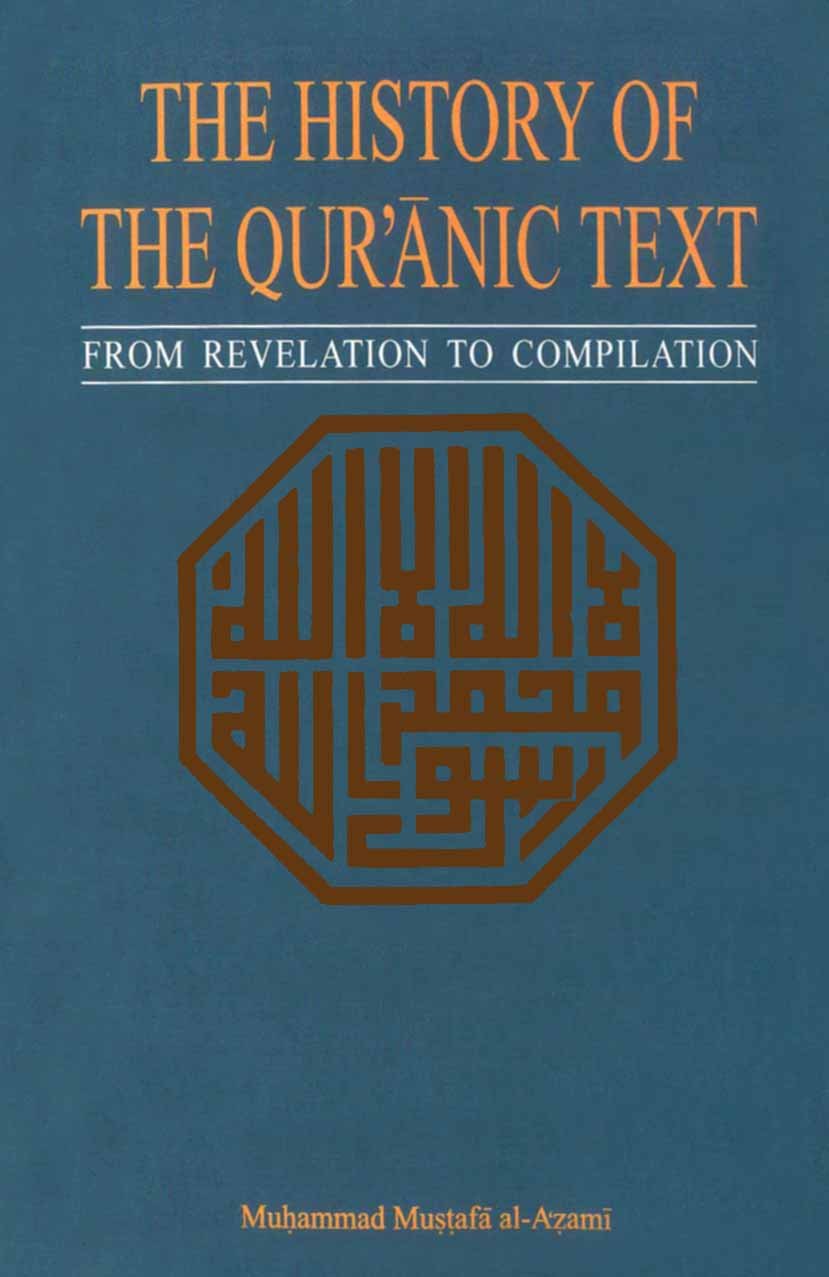

The History of The Qur'anic Text: From Revelation to Compilation: A Comparative Study with the Old and New Testaments
F**Z
Should be required reading for all students of the Qur'an's history!
This is a very detailed book. Al-Azami masterfully explains the history of the Qur'an and its "immaculate" preservation, using archaeological and other historical evidence to back up his claim. He also deals with the orientalist claims made against the Qur'an and refutes the likes of Jeffrey, Goldziher and Mingana, using the evidence. He then proceeds to compare the history of the Qur'an's preservation with those of the Old Testament and the New Testament and shows quite conclusively that there really is no comparison. This book should be required reading for all interested in the actual history of the Qur'an. I also recommend Ahmad Al-Iman's book "Variant Readings of the Qur'an: A Critical Study of Their Historical and Linguistic Origins".
M**N
... on comparative religious aspect and the contemporary environment is great. It is a wonderful reference book on the ...
The research on comparative religious aspect and the contemporary environment is great. It is a wonderful reference book on the origins of written Quran.
M**Y
Required reading.
I should probably preface my review by saying that nobody should study the transmission of the Qur'an without actually reading this book. Due to a lot of other literature out there seeking to somehow cast doubt over the Qur'an, it's important to get the facts straight before delving into critical works, the reason being is that even nowadays a lot of them essentially misunderstand the nature of the transmission of the Qur'an. For example, applying textual criticism on the Qur'an is simply category error.This is a very scholarly work but the author is still able to maintain a pace suitable for the interested layman.THE GOOD.Azami's work is analytical, not simply repeating the history of the compilation of the Qur'an, but also looking at a lot of early manuscripts and scholarly inspections of them, to show us that we indeed have Uthman's compilation of the text. I don't think anybody actually doubts that anymore anyway. What's also important is that he analyzes contentions against the traditional Muslim position.He covers the causes of variant readings, and demonstrates how they could not have been due to the fact that the Uthmanic codex did not have any dots.I actually came across a few interesting documents inside the book. There seems to be a reproduction of a letter written by the Prophet's scribe. It lacks diacritical dots, a tell-tale sign of a very early document. I'll have to look more into that.All in all, if not for the few negatives, I'd give this 5/5, but let's get on to the bad.THE BADThe section on the old and new testaments was completely unnecessary and not very good either. Azami seems to be fed up with the state of Islamic Studies in the west in his day, where a lot of renowned scholars are prone to wishful polemic rather than actual useful contributions to the fields. However, he seems to take this as some sort of attack from Christianity against the Muslim traditions. While I agree that Quranic studies in the West can be quite potato, it has become rather a bit more realistic over the last few decades. Furthermore, it's not like biblical studies is solely the arena of conservative Christian believing scholars- a lot of standard beliefs among bibilical scholars clearly contradict Christian belief, such as the authorship of the Torah, or the actual contents of Jesus's message.I watched an interview of him earlier, where he said something to the effect of, "When a muslim scholar errs, it is because he made a genuine mistake... when an orientalist errs, he does so because he is dishonest". I think that's a rather harsh assessment, and one that is outdated. You definitely get that same sentiment when you read his first and last few chapters.Yes, it's true, people like Mingana, Jeffrey, Schacht et-al were dishonest when supporting their theories on the Qur'an and Hadith literature, I think it's false to simply make a blanket statement on all of orientalism today. There are people in Islamic Studies who don't have some sort of itch to prove Islam wrong. This can be clearly shown by one article in SOAS released very recently that pretty much breaks apart revisionist theories on the origins of the Qur'an.The bottom line: Props to Azami for a wonderful book on the Qur'an, but pick up a book by a biblical scholar for information on the bible.
N**E
Short bearded dude: Can you please provide a citation ...
Short bearded dude: Can you please provide a citation to the SOAS article that you referred to in your review. Thanks.
R**4
Five Stars
awesome book with real facts and real research
S**R
amazing read
This is a very scholarly book; the author has made a genuine effort to make it easy to understand for the readers.Generally my Christian friends make a distinction between what they accept as authoritative documents (they accept all information from them)and on the other hand what they deem as apocryphal /heretical or later writings. They generally denounce all the information contained in apocryphal and heretical writing, specially information which contradicts the books they accept.Islam with its wholesome approach looks closely at the transmission of the information and it may be that some of the later information is sometimes accepted over and above the earlier tradition which may have been corrupted. However people of other faiths mostly miss this point and use any information mentioned in Islamic sources as evidence. It’s very disappointing but anyway that’s life. Thank you for reading and May God bless you all.
A**R
A fabulous read
A great book to learn about the history's, of Islam & the three major religion
Trustpilot
1 week ago
3 days ago